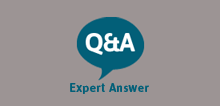Getting help for addiction
The fact that you’ve come to this article is a huge step. Admitting that you’re struggling is never easy for anyone, but we’re here to support you. If Harry Styles couldn’t go solo at first, neither should you.

Kellie and Michael work for a drug and alcohol charity based in Newcastle upon Tyne and have over 20 years of experience between them. Massive thanks to the both of them for letting us borrow their expertise on getting help with addiction.
Am I an addict?
The thing with addiction is there isn’t usually a lightbulb moment where you suddenly realise you’re an addict. Your life doesn’t have to be a shambles in order for you to be taken seriously. So don’t assume you have to wake up repeatedly in a pool of your own vomit, with no memory of last night’s party to have a drink or drug problem. Even feeling like you consume more (in quantity or consistency) than your friends is a valid reason for seeking help or reassurance if you need it.
Kellie and Michael suggest going straight to a drugs service if you think there’s a problem as they can offer non-judgmental guidance and support. The key thing to understand is that your relationship with drugs is personal to you, so there’s no ‘right way’ to go about seeking help. As long as you’ve started facing your demons and reaching out for support, you’re heading in the right direction.
I think I’m an addict. What should I do?
The first point of call needs to be your GP. They have access to the services, support groups and treatment options that you need to get better. You may be doubting whether you can trust your doctor to keep your problem confidential. Good news is most GPs have a confidentiality policy. If you’re not feeling it, you can always ask your surgery to refer you to another doctor.
“Tough as it is to see a doctor and tell them ‘I think I have a problem’, talking to someone is the most important thing you can do,” says Dr Robert Hill, a consultant clinical psychologist and addiction specialist.
If you don’t want to face your doctor, there are lots of national charities that can help you, like Alcohol Concern, Frank, and Release. There will also be local advice centres and group meetings, such as Narcotics Anonymous and Alcoholics Anonymous, who can offer long-term support.
But to receive medical help for your substance use, you will need to see a health professional and get a referral.
What does addiction treatment involve?
It depends. If your body is physically dependent on a substance, then you need to detox it from your system. This will be medically assisted so you come off that bugger in a safe way. Next will be group therapy, as well as individual discussions looking at the reasons behind your addiction.
If you take a substance at hazardous levels, but your body is not physically dependent on it, you will probably be referred to a psychologist, community health nurse, or Cognitive Behaviour Therapist. They can help you come up with ways to change the habits you’ve developed.
Finding the right kind of support
It’s also important to note that a professional might not provide the right support for you, we’re all human and don’t always get it right. Kelly and Michael suggest looking in other places, such as your local drug service, if you feel like you aren’t getting the help you need. We know it may seem like a lot to go through the process again but don’t give up on recovery just because of one shitty experience.
“Addiction help isn’t about a doctor repeatedly telling you, ‘this is bad for you’. It’s about working with the person and looking at the pros and cons of using,” says Dr Hill. “You weigh up the reasons for staying the same and the reasons for changing, and this is where it gets interesting. This is where addicts start seeing light at the end of the tunnel.”
Do I have to give up drugs and alcohol FOREVER?
The thought of a lifetime abstaining from something you relied on for so long can be pretty scary. Don’t lose hope though, because addiction recovery is not a one-size fits all. Some people choose to stay ‘California Sober’ a lá Demi Lovato or stick to the standard 12-step program. The important thing is that you keep checking in with yourself and having conversations about how you can adapt your recovery to where you’re at in life.
Taking it one day at a time
Most of the time recovery is more about facing the root of your addiction. As Kelly and Michael highlight, this can be anything from just liking the feeling of being high to wanting to escape your problems. As you go through this process, try to create sustainable goals with the aim of preventing relapse. Take it one day at a time. For example, if you’re a heavy drinker, telling yourself “I’ll try not to drink tomorrow” instead of “I can never drink again” might help.
We can’t lie, there are going to be some hard days but it’ll be worth it in the end. If you don’t believe us, listen to Dr.Hill who wants readers to know that “Life is going to get better.”
Can I treat my addiction by myself?
You can certainly try, but statistics aren’t on your side. Specifically if your body is physically dependent on a substance, it can get pretty rough. Overcoming substance addiction isn’t an easy thing to do. There will always be a risk of relapse. That is why it is ridiculously important to reach out and get help with addiction recovery. One thing you can do on your own is start exercising or finding a hobby to fill your time. Doing anything to keep your mind off drugs is a step in the right direction.
As Kellie and Michael put it “If you feel the doc wasn’t helping – go to your local drug service” Just know that there is always someone who is willing to help, no questions asked.
The Mix are here for you 24/7 with our free and confidential support services.
Next Steps
- Addaction helps people recover from drug and alcohol addictions.
- Chat about this subject on our Discussion Boards.
By Nishika Melwani
Updated on 03-Aug-2021
No featured article








